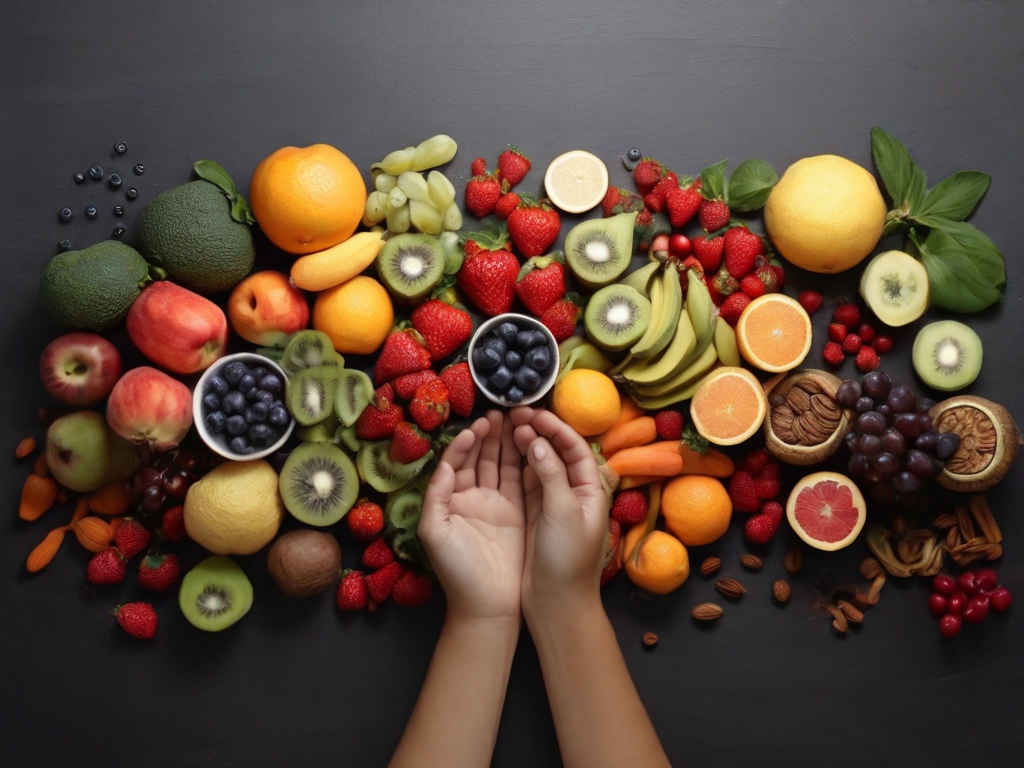A balanced and nutritious diet is essential for ensuring a healthy lifestyle and promoting overall well-being. Proper food selection can provide the body with the essential nutrients it needs to function properly, prevent diseases, and maintain a healthy weight. In this article, we will explore in detail the top 15 foods that you can incorporate into your diet to achieve optimal balance and complete nutrition.
1. Spinach: Leafy Green Vegetables
Spinach is widely recognized for its high nutrient content and multiple health benefits. It is an excellent source of vitamins A, C, and K, as well as folate, iron, calcium, and fiber. These nutrients are essential for bone health, brain function, and immune system support. Additionally, spinach is low in calories and can aid in weight loss efforts.
2. Salmon: Healthy Protein Rich in Omega-3s
Salmon is one of the healthiest fish you can include in your diet. It is an excellent source of high-quality protein and is packed with omega-3 fatty acids, which are essential for heart and brain health. Additionally, salmon is rich in vitamins D and B12, as well as minerals such as iron, zinc, and selenium. Consuming salmon regularly can help reduce the risk of heart disease and improve cognitive health.
3. Quinoa: Whole Grain with Complete Proteins
Quinoa is a pseudocereal that has become increasingly popular in recent years due to its unique nutritional profile. It is an excellent source of high-quality plant-based proteins, making it an ideal choice for vegetarians and vegans. Additionally, quinoa is rich in fiber, iron, magnesium, and antioxidants. It is a versatile food that can serve as a base for main dishes, salads, or side dishes.
4. Broccoli: Cruciferous Vegetable with Powerful Antioxidants
Broccoli is a cruciferous vegetable loaded with nutrients and bioactive compounds. It is an excellent source of antioxidants, including vitamin C and various phytochemicals with anticancer properties. Additionally, broccoli is rich in fiber, folate, calcium, and potassium. Consuming broccoli regularly can help reduce the risk of chronic diseases such as heart disease, diabetes, and certain types of cancer.
5. Greek Yogurt: Protein Source and Probiotics
Greek yogurt is an excellent choice for obtaining high-quality protein and beneficial probiotics for gut health. Unlike regular yogurt, Greek yogurt is thicker and contains less sugar and carbohydrates. It is an excellent option as a healthy snack or part of a balanced breakfast. Opt for plain Greek yogurt without added sugars for maximum benefit.
6. Sweet Potato: Antioxidant-Rich Food with Fiber
Sweet potatoes, also known as yams or sweet potatoes, are an excellent source of nutrients and antioxidants. They are rich in vitamin A, vitamin C, potassium, and dietary fiber. Additionally, sweet potatoes have a lower glycemic index than white potatoes, meaning they do not cause spikes in blood sugar. You can enjoy them baked, steamed, or as part of sweet or savory dishes.
7. Avocado: Healthy Fat and Potassium
Avocado is a unique and delicious fruit that is rich in healthy fats, primarily monounsaturated fatty acids. It is also a good source of potassium, an important mineral for heart health and blood pressure regulation. Consuming avocado regularly can help reduce LDL cholesterol (bad cholesterol) levels and promote cardiovascular health. You can enjoy it in salads, sandwiches, or simply as a side dish.
8. Berries: Antioxidants and Vitamins
Berries, such as strawberries, blueberries, and raspberries, are some of the healthiest fruits you can eat. They are rich in antioxidants, such as polyphenols and vitamin C, which can help combat oxidative stress and reduce the risk of chronic diseases. Additionally, berries are low in calories and rich in fiber, making them an ideal choice for those looking to stay healthy and fit.
9. Eggs: Complete Protein and Key Nutrients
Eggs are one of the most complete and affordable sources of protein available. They are rich in essential amino acids, vitamins, and minerals, including vitamin B12, vitamin D, and choline. Consuming eggs regularly can help maintain muscle health, promote satiety, and improve brain health. Opt for organic free-range eggs whenever possible for maximum nutritional benefits.
10. Legumes: Plant Proteins and Fiber
Legumes, such as beans, lentils, and chickpeas, are an excellent source of plant-based proteins, dietary fiber, and complex carbohydrates. They are staples in many diets around the world, especially vegetarian and vegan diets. Legumes are a great way to increase fiber intake and improve digestive health. They are also rich in iron, zinc, and other important minerals.
11. Nuts: Healthy Fats and Essential Nutrients
Nuts are an excellent source of healthy fats, protein, fiber, and a variety of vitamins and minerals. They are particularly rich in omega-3 fatty acids, which are beneficial for heart and brain health. Consuming nuts regularly can help reduce the risk of heart disease, improve brain health, and control appetite. Opt for a handful of nuts as a healthy snack or add them to salads, yogurts, or smoothies.
12. Green Superfoods: Concentrated Nutrients in Powder Form
Green superfoods, such as spirulina, chlorella, and wheatgrass, are nutrient-dense foods that offer a wide range of health benefits. They are rich in vitamins, minerals, antioxidants, and bioactive plant compounds that can help strengthen the immune system, detoxify the body, and increase energy and vitality. Green superfoods are available in powder form and can be easily added to smoothies, juices, water, or various recipes.
13. Tomatoes: Lycopene and Other Antioxidants
Tomatoes are an excellent source of lycopene, a potent antioxidant that can help reduce the risk of heart disease and certain types of cancer. They are also rich in vitamin C, potassium, folate, and other essential nutrients. Consuming tomatoes regularly, whether fresh, canned, or in the form of sauce, can provide a variety of health benefits, including protection against oxidative damage and inflammation.
14. Carrots: Beta-Carotene and Fiber
Carrots are one of the most popular and versatile vegetables available. They are rich in beta-carotene, an antioxidant that the body converts into vitamin A, which is essential for eye health, skin health, and immune function. Additionally, carrots are a good source of dietary fiber, which can help promote digestive health and blood sugar control. You can enjoy carrots raw as a snack or add them to salads, stews, and baked dishes.
15. Oats: Soluble Fiber and Complex Carbohydrates
Oats are a whole grain that is rich in soluble fiber, especially beta-glucan, which can help reduce LDL cholesterol (bad cholesterol) levels and improve heart health. They are also a good source of complex carbohydrates, which provide sustained energy and stability in blood sugar levels. Oats are an excellent choice for breakfast, whether as cooked oatmeal, homemade granola, or oat-based smoothies.
Conclusion
Incorporating these top 15 foods into your daily diet can help you achieve optimal balance and complete nutrition. Remember that variety and moderation are key to a healthy and balanced diet. Additionally, be sure to include a wide variety of fresh, whole, plant-based foods in your diet to obtain a wide range of nutrients and health benefits. Take care of your body, nourish your mind, and enjoy a healthy and happy life!
Explore our e-shop and take your culinary experience to the next level! At Cooking Landia, we have carefully selected the finest kitchen utensils and products for you. From high-quality chef’s knives to durable cookware, and innovative culinary gadgets, you’ll find everything you need to equip your kitchen like a true professional. Discover our curated collection and choose the products that will make cooking even more exciting and efficient. Visit our e-shop now and turn every moment in the kitchen into an extraordinary experience! 🍳🔪🍴
More content
- White Fish vs. Blue Fish: Which is Better for Your Health?

- Vegetarianism for Beginners: Simple Steps to Adopt This Lifestyle
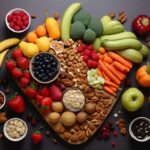
- Unlock Your Culinary Potential: Beginner’s Guide to Essential Techniques

- Title: Culinary Traditions in Festivals: Festive Flavors of the World

- The Secrets of Perfect Seafood Cooking: Kitchen Tricks

- The Secrets of African Cuisine: Traditional Recipes and Flavors

- The Most Impactful Gastronomic Trends Shaping the World

- The Great Masters of Cuisine: Contributions to its Evolution

- The Evolution of Food: Traditional vs. Modern Cuisine Compared

- The 10 Most Exclusive Gourmet Products You Must Try

- Taste the Best of Africa: Top 5 Iconic Regional Recipes

- Taste of the Mediterranean: 5 Key Dishes

- Symbolism of Food: The Meaning in Every Bite

- Sustainable Dishes: Gastronomic Trends for a Greener Future
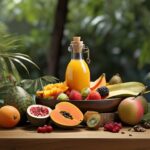
- Starting Out in the Kitchen: Pro Chef Tips for Beginners

- Spices Through Time: Understanding Their Historical Importance

- Simple Mediterranean Cooking for Beginners: Impress Your Guests!

- Secrets of Latin American Cuisine: Traditional and Authentic Recipes You Must Try

- Secrets of Asian Cuisine: Discovering 8 Traditional Techniques

- Revealing the Superfood Potential of Red Fruits: Benefits & Recipes

- Protein Sources in a Vegan Diet: What to Do?
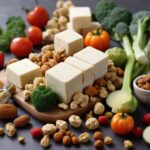
- Probiotic Foods: How Do They Improve Your Digestive Health?

- Perfect Pairing: Wines and Dishes for Gastronomic Celebrations

- Myths and Legends: The Magical Stories Behind Foods

- Menus for Allergen-Free Diets: The Best Recipes and Nutritional Strategies
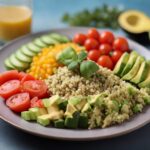
- Mastering Healthy Cooking: Unveiling 4 Low-Fat Secrets

- Master Your Kitchen: 10 Unexpected Tips for Easy Cooking

- Low-Carb Diets: Top 10 Recommended Foods

- Low-Carb Diet: A Beginner’s Guide

- Innovation in Cuisine: Gourmet Products in Traditional Recipes

- Iconic Dishes of Spanish Cuisine by Region

- How to Choose the Best Poultry for Your Recipes

- Homemade Sushi: Simple Steps to Prepare Your Favorite Rolls

- Historia del Chocolate: De los Aztecas al Presente

- Healthy Breakfasts: 7 Nutritious Recipes for the Whole Week
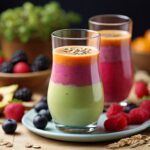
- Healthy and Affordable Recipes: Eating Well Without Spending Much

- Gastronomy and Folklore: Culinary Traditions and Local Myths

- Gastronomía egipcia: dieta y recetas ancestrales

- From Fusion to Tradition: 4 Global Gastronomic Trends

- From Farm to Table: How to Select Quality Meat

- Flavors of the World: A Journey Through Diverse Culinary Influences

- Exploring Flavors: Top 10 Typical Dishes of Latin America
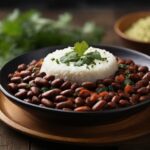
- Efficiency Unleashed: Explore the Art of Mise en Place

- Easy Gluten-Free Recipes for Every Day of the Week

- Dietary Plans for Food Allergies: Top 10 Tips and Recommendations

- Culinary Secrets Unveiled: Elevate Your Cooking with Simple Ingredient Tricks

- Culinary Journey: Discovering Culinary Traditions from Different Cultures

- Culinary Innovations: The Most Impactful Gastronomic Trends

- Culinary Globalization: Exploring 6 Iconic World Dishes

- Complete Guide: Enhance Your Dishes with Fresh Herbs
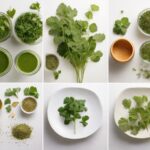
- Complete Guide to Gluten-Free Diets: Tips for Beginners
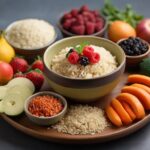
- Complete Guide to Cooking Methods: Everything You Need to Know

- Comida Callejera en el Mundo: Historia y Platos Típicos

- Boost Your Immune System: The Best 10 Foods

- Art of Fruit and Vegetable Cutting: Expert Techniques Revealed

- A Gastronomic Journey: Migratory Influences in the Cuisine

- 6 Healthy Recipes for a Balanced and Delicious Diet

- 5 Great Gastronomic Moments: Historic Milestones in the Cuisine

- 15 Foods to Maintain a Balanced and Nutritious Diet

- 10 Latin American Sweets: Tempting Dessert Adventures Await


